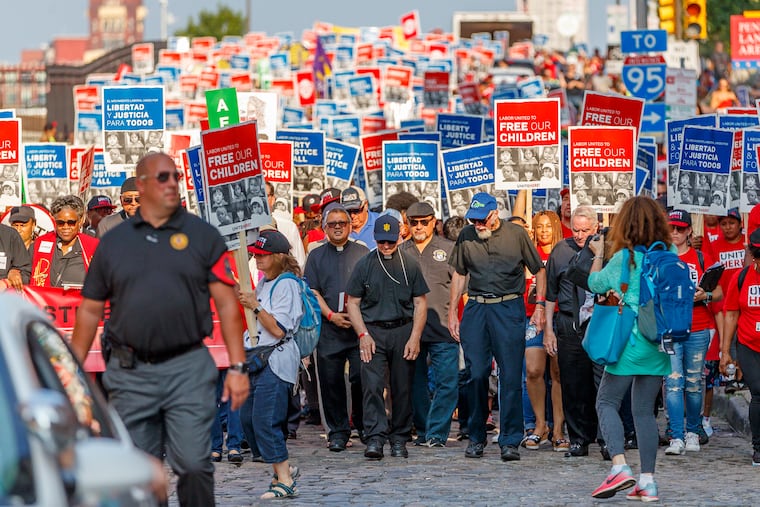New Pa. law requiring immigration checks on construction workers shows labor’s identity crisis
The controversy over the so-called E-Verify law reflects a longstanding debate about the identity of the labor movement: Should unions protect their own? Or should they fight for all workers?

In October, Pennsylvania’s building trade unions scored a big win when Gov. Tom Wolf let a controversial bill become law.
The law, which exists in some form in 20 states, requires all construction companies in the state to run immigration checks on workers through a federal database called E-Verify.
The building trades pushed for the law, as is standard building trades practice, believing it will lead to more work for their members. They also said it would ultimately help undocumented workers by targeting the contractors who were exploiting them.
“This isn’t anti-immigrant,” Frank Sirianni, president of the Pennsylvania Building and Construction Trades Council, told WHYY. “It’s pro-worker.”
But immigration advocates, as well as some unions like 32BJ SEIU, said the law would ultimately hurt workers, regardless of their immigration status, by making employers less likely to hire immigrants. And, they said, it would further the culture of fear immigrants have experienced during the Trump administration.
The battle over E-Verify reflects a longstanding debate about the identity of the labor movement, especially as labor fights to survive in a time of historically low union membership and unprecedented attacks from right-wing groups and the federal government: Should unions protect their own? Or should they fight for all workers?
» READ MORE: After Supreme Court’s ‘Janus’ decision, Pa. is hub for anti-union lawsuits
Across the country, progressive union activists have adopted the stance that, in order for the movement to survive, labor must fight for all workers. It’s a belief that has grown more prominent in Philadelphia and has seemed to influence even traditional labor leaders. But E-Verify is a reminder that philosophical differences remain between some of the most powerful unions in the state.
Will the law mean more work for union members?
The E-Verify law comes at a time when the construction industry says it can’t find enough skilled workers to keep pace with demand. In Philadelphia, workers who are either undocumented or misclassified as independent contractors make up between 15% and 25% of the local construction industry, according to estimates in a 2018 report from the Office of City Controller.
It’s standard for building trades unions to push for measures that will lead to more work for their members — the Philadelphia Building Trades lobby for “project labor agreements” that require the use of union labor, for example.
But research from states where E-Verify laws have been present for years doesn’t show that they boost work for members.
A 2018 Moody’s study found that, in Arizona, where a similar law has been in effect for more than a decade, the law “offered no observable benefit” to non-Hispanic, native-born workers. It did, however, significantly lower the number of undocumented immigrants working in the state, which is consistent with findings from a broader survey of E-Verify laws from the Dallas Federal Reserve published in 2017.
Old school vs. new school
In the summer of 2018, thousands of union members marched through Old City in a rally organized and funded by the Philadelphia AFL-CIO and the Philadelphia Building Trades to protest the separation of immigrant families. Asked why the AFL-CIO organized such a rally, president Pat Eiding, who comes out of the building trades, said he believed it was the labor movement’s responsibility to advocate for issues like immigrant justice.
The Philadelphia AFL-CIO, whose executive board has heavy building trade representation, has also publicly supported measures to give rights to non-union workers, like those in retail or house cleaning — a historical taboo for unions fearful of hurting the case for unionization. And the city’s deputy mayor for labor Rich Lazer, an ally of electricians union Local 98 and Building Trades leader John Dougherty, has championed laws that afford rights to non-union workers.
» READ MORE: Why labor has embraced immigrant rights — and 9 more examples of Philly intersectionality
Even the building trades’ argument that E-Verify would help undocumented workers suggests that these more progressive values are gaining traction.
But if the trades truly want to help undocumented workers, some say there are more effective ways.
“If they want to keep undocumented workers from being exploited," said Sarah Lawrence College labor historian Priscilla Murolo, “then they should organize them.”